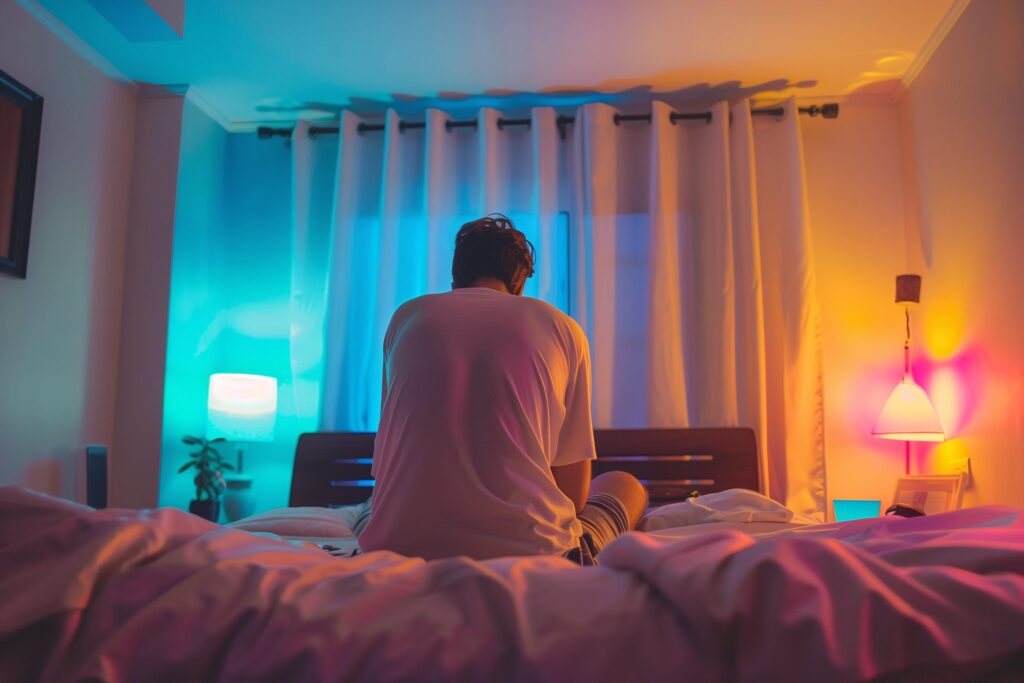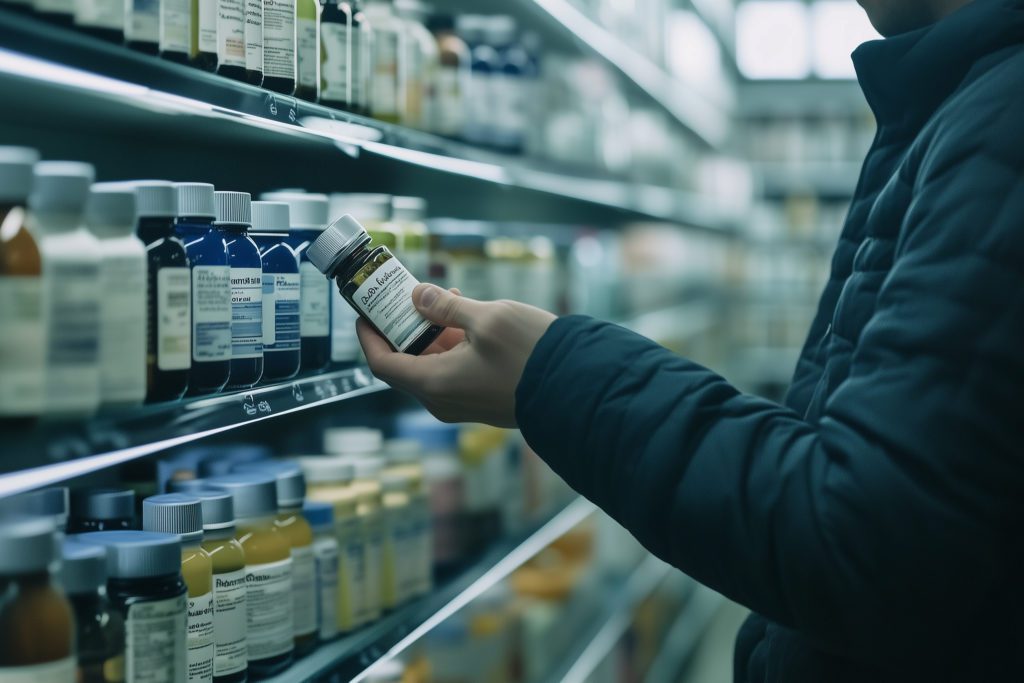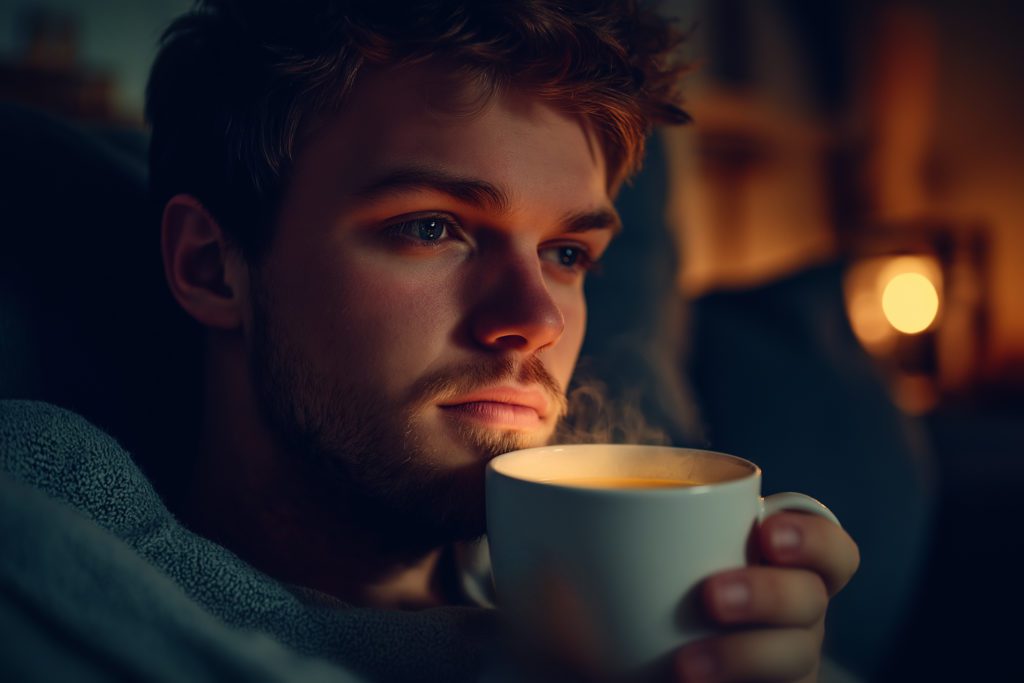
Natural Sleep Supplements Vs. Prescription Sleep Medications: Which Is Better?
Prescription sleeping medications and sleep supplements are the most popular treatments for insomnia. Which is better? There are pros and cons to both.

Struggling to get some shut-eye? Getting good sleep is important. Insomnia can have a major impact on your physical and mental health. There are various sleep aids you can use to help you get more sleep. These include prescription medications and various natural remedies. According to a new report by the CDC, approximately 1 in 12 people in the U.S. take either prescription or natural sleep aids almost daily. So, which sleep aids work best? Let’s take a closer look at both.
Prescription Sleep Medications
If you have trouble falling or staying asleep regularly, prescription sleep medications can help.
Prescription sleep medications have been shown in studies to reduce the length of time it takes to fall asleep, increase the length of sleep, and improve the overall quality of sleep.
You’ll have to make an appointment with your doctor for these medications since they aren’t available without a prescription. Listed below are some sleep medications that are used to treat insomnia:
- Sedative hypnotics - These are the most popular prescription drugs used to treat insomnia. They include eszopiclone (Lunesta), zaleplon (Sonata), and zolpidem (Ambien).
- Dual orexin receptor antagonists (DORAs) - These are the newest class of prescription sleep medications on the market. One of the disadvantages is that they are quite expensive. Currently, there are three of these drugs available: Suvorexant (Belsomra), daridorexant (Quviviq), and lemborexant (Dayvigo).
- Benzodiazepines (benzos) - These drugs tend to be very effective when used for sleep. However, they have a risk of dependency and aren’t recommended for long-term use. Common benzos used for sleep include triazolam (Halcion), estazolam (ProSom), flurazepam (Dalmane), and temazepam (Restoril).
- Antidepressants - Some drugs that are FDA-approved for depression are used off-label for sleep because drowsiness is one of their main side effects. Trazodone is one of the most popular antidepressants used for sleep. It is effective and doesn't have the risk of dependence.
Pros:
These medications are effective and likely to induce deep sleep. They can help you go to sleep faster. When you take these medications, there’s a good chance that you will stay asleep the whole night, as well.
Cons:
All of these medications carry the risk of side effects. Some of them can lead to severe daytime drowsiness. Per the Cleveland Clinic, eight out of 10 people experience a hangover effect the day after taking prescription sleep medicine.
In addition, some prescription sleep medications, such as benzodiazepines and sedative-hypnotics, can lead to dependence and cause rebound insomnia. Taking any of the above medications with alcohol can be very dangerous.
Natural Sleep Supplements
When faced with sleepless nights, many people turn to natural supplements to help them sleep, especially those who prefer to take a more holistic approach to their health. These products use natural herbs, vitamins, and hormones to promote rest and help the mind and body relax. Here are some of the most popular natural sleep supplements.
- Melatonin - Melatonin is the go-to sleep supplement for many people. Melatonin has plenty of research to back its effectiveness. It shortens the amount of time it takes to fall asleep and reduces daytime sleepiness.
- Magnolia bark - Magnolia bark is great for both anxiety and sleep. It helps calm and de-stress the nerves. Magnolia bark also acts as a sedative, helping to bring on sleep.
- Magnesium - Magnesium is believed to help improve both sleep quantity and quality. In addition, this mineral helps relax the muscles, which can help those who get muscle cramps at bedtime or who have restless legs syndrome. For sleep, magnesium glycinate is the best form of this mineral.
- Glycine - Glycine is an amino acid supplement. Research has found that taking 3 grams before bedtime enhances sleep quality, reduces insomnia, and helps maintain a healthy sleep cycle.
Pros:
Natural sleep aids are considered to be safer than prescription sleep medications. This is because they generally have fewer side effects. In addition, these remedies aren't likely to be habit-forming.
Cons:
Because they're regulated as dietary supplements, it's hard to know what you're really getting in a bottle.
Another downside to natural sleep supplements is that people usually take them without seeing a doctor. This can allow serious medical issues or sleep disorders like sleep apnea to go undiagnosed.
The Role of Good Sleep Habits
Both medications and natural sleep aids should be used in combination with good sleep hygiene practices, such as:
- Find ways to wind down and relax before bedtime: Try deep breathing exercises, listening to calming sleep sounds, reading a book, journaling, taking a warm bath, or drinking a cup of decaffeinated tea.
- Make it a priority to get between 7-9 hours of sleep a night: This is especially important if you take a prescription sleep medication. You should only take these pills when you know you can get at least 7 hours of sleep.
- Get enough physical activity: The research is clear that exercise improves sleep quality. Exercise relieves stress and anxiety, plus it wears you out so that you are more likely to fall asleep easily. Aim for 30 minutes of exercise a day. Just make sure you don’t do high-intensity exercise close to bedtime.
Alternatives to Sleeping Pills
While most people are aware of prescription sleeping pills and sleep supplements, they aren't the only options to help you sleep better. There are several very good alternatives.
Sleep Therapy
Cognitive behavioral therapy for insomnia (CBT-I) is a scientifically proven alternative to sleep medication. This four to six-week therapy program can reset your views on sleep and help you get better sleep. It is one of the most effective treatments for insomnia.
Sleep Yoga
Yoga is a restorative, gentle way to help you wind down for bed. It is also effective for tackling sleep problems too. One study found that over 55 percent of people who practice yoga before bed found that it helped them get better sleep. More than 85 percent of study participants had lower stress levels after doing yoga. Reducing stress can help you fall asleep faster as your mind won’t be racing with worrying thoughts.
Choosing a Natural Sleep Supplement Vs. a Sleeping Pill
There are pros and cons to both natural sleep supplements and prescription medications for sleep. What is right for you will just depend on your personal preferences. Make sure you are also practicing good sleep habits, as well.
FAQ
How do I know if I need a sleep aid or just better sleep habits?
If occasional sleeplessness is the issue, improving sleep hygiene (like limiting screen time and keeping a bedtime routine) might be enough. But if insomnia is frequent and disruptive, a sleep aid or therapy might help.
Can I mix natural sleep supplements with prescription sleep meds?
It’s not always safe to combine them. Some natural supplements, like melatonin or magnesium, may interact with prescription medications, enhancing sedation or causing unwanted side effects. Always check with a doctor first.
Are prescription sleep medications safe to take every night?
Most prescription sleep aids are not recommended for nightly use due to the risk of dependency or side effects like morning grogginess. They’re typically best for short-term relief while addressing underlying sleep issues.
Can taking sleeping pills make my insomnia worse in the long run?
Yes, some prescription sleep medications—especially benzodiazepines and sedative-hypnotics—can cause rebound insomnia when you stop taking them, making sleep problems worse over time.
Are natural sleep supplements safe for long-term use?
Most natural supplements, like magnesium and glycine, are generally safe for long-term use. However, melatonin should be used sparingly, as overuse can disrupt your body’s natural sleep-wake cycle.

Written by
Emily Mendez
Emily Mendez is a former therapist and mental health author. She is one of the leading voices in mental health. Emily's writing has appeared in eCounseling, SonderMind, and more. Emily is frequently interviewed by Healthline, Fatherly, INSIDER, Family Circle, and other national media for her advice and expert opinion on the latest mental health topics.
Download Pillow
Get help
Press & News
Legal
Connect
X (Twitter)
Company
Copyright © Neybox Digital Ltd.


